Worried about calculating how many grams are in a tablespoon and have no idea how to convert? Do not worry, as we get into details on how easily we can convert these measurements and make cooking in the kitchen easy.
These cooking conversions come in handy while trying to measure small things in the kitchen that can make cooking recipes or baking easier without confusion.
Reading the entire post can help solve the grams in a tablespoon conversion problem.
Suggested
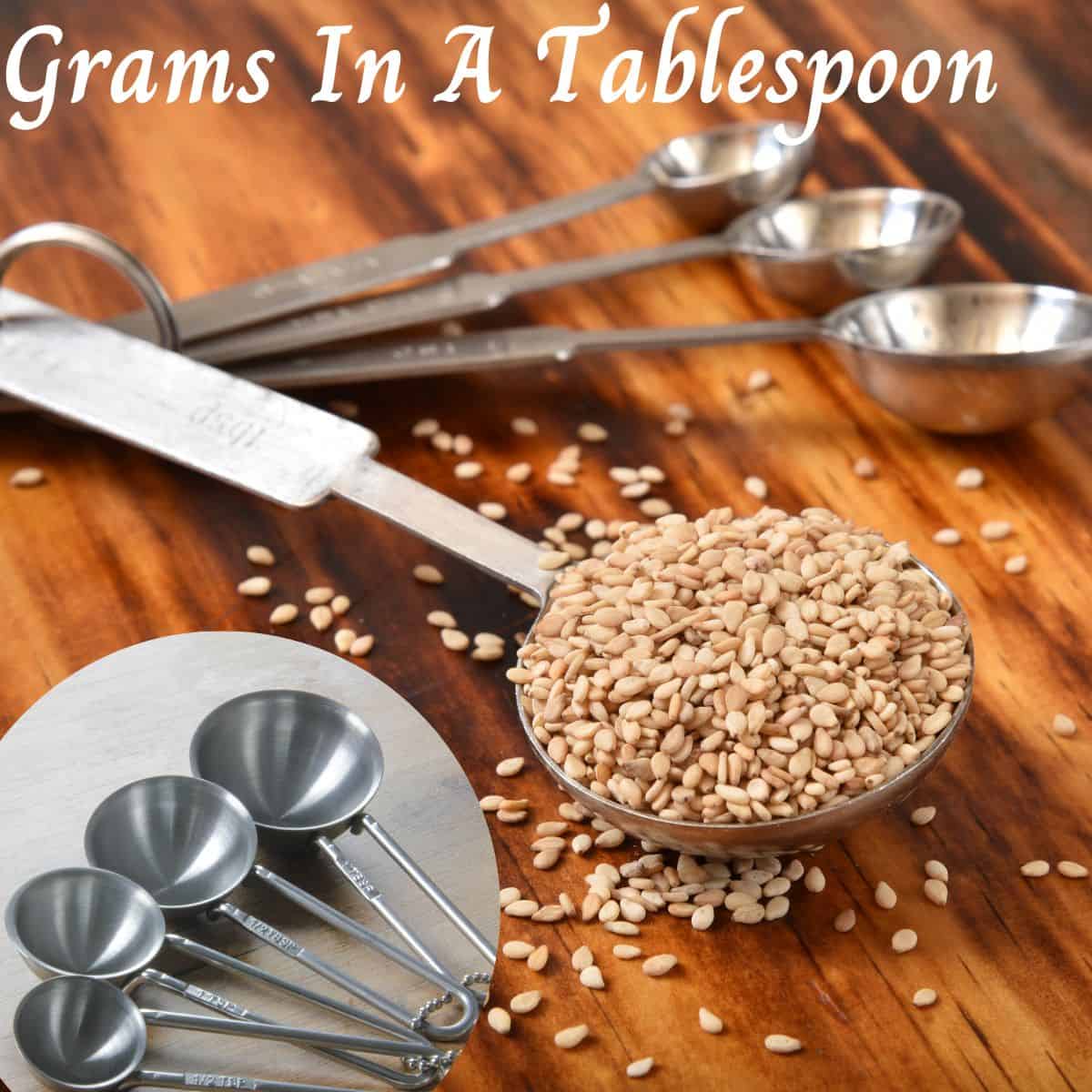
Jump to:
- Different systems of measurements
- How to measure tablespoons in each system?
- Why do we need grams in a tablespoon conversion?
- What is a gram?
- What is a tablespoon?
- Conversion from tablespoon to grams and grams to tbsp
- Table for tablespoons to grams
- Conversion table for liquids
- Conversion table for tablespoon to grams for dry ingredients
- Grams to tablespoon conversion
- Frequently asked questions
Different systems of measurements
The most common system is the Metric system of measurement used worldwide in most countries, and it is the International System of Units (S.I.).
It is measured in meters/kilometers, grams/kilograms, and liters/milliliters as the units for length, mass, and volume.
The other system is the Imperial system, commonly used by the United States.
It is a system to measure units in feet/inches/miles for length, uses pounds for mass/weight, and measures volume in fluid ounces/pints/cups, etc.
How to measure tablespoons in each system?
In each system of measurement, the tablespoons vary slightly. Regarding tablespoons conversions, the United States uses U.S. customary measurements for volume, not their traditional Imperial measurements.
Imperial tablespoon has higher capacity when compared to U.S. tablespoon.
The below measurements are for a tablespoon of water.
1 tablespoon = 15 ML (METRIC)
1 tablespoon = 14. 786 ML (round of to 14.8) [U.S.] or ½ of a fluid ounce
1 Imperial tablespoon = 17. 8 ML (high when compared to other systems)
Suggested:
Which system is easier to measure?
Honestly, the metric system is widely used worldwide in Britain and European countries and is easy to follow if you travel to any country.
The United States uses the Imperial system and has decided to continue to use this system to date.
This can become a problem if one moves to the USA from another country and does not understand the Imperial measurement system.
The metric system of measurement used worldwide is relatively easy to make calculations or conversions in every field and sector, including cooking.
In countries like Canada, they sometimes use imperial too along with the metric system to make consumers across the borders easily understand the units of measurement.
Therefore, one needs to have an understanding of both systems.
Why do we need grams in a tablespoon conversion?
In baking or cooking, the ingredients are usually mentioned in tablespoons, and it is hard to find out how many grams they measure.
Knowing the formula or method to measure tablespoons to grams makes it easier to follow a given recipe and the output of the recipe also comes out perfectly with a balanced taste of all ingredients.
A mistake in understanding the ingredients can make the entire recipe go wrong and taste bad. Therefore, it is necessary to understand the conversions of grams to tablespoon and tablespoon to grams.
Suggested
What is a gram?
Gram is a unit of measurement of mass or weight according to the System of International, also called the metric system. The metric system measures weight in grams (g) and kilograms (kg).
A gram is the base unit of mass in the metric system, and a kilogram equals 1000 grams. Gram is equivalent to one-thousandth of a kilogram.
Milligram and Gram are the smaller units to measure the mass of minor things, while kg is the more significant measure to weigh the mass of more oversized and essential items.
What is a tablespoon?
Would you like to know what precisely a tablespoon is? It(tbsp) is a unit of volume commonly used in cooking recipes and pharmacy.
A tablespoon can be used to measure dry and wet ingredients if we know the conversion of grams to a tablespoon or vice versa.
However, different systems have different capacities in a tablespoon, and below are the tablespoon measurements mentioned for water(pure) in METRIC, US TBSP, UK, AND IMPERIAL standard measurements.
In terms of volume for a tablespoon of water,
1 tablespoon =15 ML (Metric System)
1 tablespoon = 14.79 ML Or 14.8 ML (US Customary)
1 tablespoon = 14.2 ML (UK)
1 tablespoon = 17.76 ML or 17.8 (IMPERIAL)
The United States does not follow Imperial measurements but follows U.S. customary measurements in terms of volume measurements.
In terms of weight or mass, a metric tablespoon is equal to about 15 grams, and this is a measure of water and does not remain the same for every ingredient.
In terms of mass or weight for a tablespoon of water,
1 tablespoon = 15 GRAMS (METRIC TBSP)
1 TABLESPOON= 14.786 GRAMS precisely [rounded to 14.8grams] (For US TBSP)
1 tablespoon = 14.2 GRAMS (UK)
1 tablespoon = 17.76 GRAMS or rounded to 17.8 Grams (IMPERIAL)
Does the spoon size vary?
This can vary; however, if you move to other places depending on the size of the spoons and in countries like Australia, the spoon size can be more prominent, and thus the volume too can increase.
If the spoon is a heaped or scooping kind of spoon, the measurement can differ from the standard measurements.
Just make sure to use standard measuring spoons while baking or cooking to get good results from the recipe.
Tablespoon measurement is different depending on the spoon we use in other countries.
U.S. tablespoon can be slightly different from the U.K. tablespoon, and the measurement of weight and volume varies slightly and matches the standard unit system.
Not all ingredients measure the same and vary according to the density of the ingredient; for example, Wet ingredients such as 1 tablespoon milk and 1 tablespoon oil measure differently in ML because their densities are different.
Similarly, dry ingredients such as 1 tablespoon sugar and 1 tablespoon flour can vary differently in measurement because of their densities.
Formula to convert tablespoon to grams is
GRAMS = tablespoon * 14.786 * ingredient density
Ex: 5 tablespoon into grams is 5*14.786 = 73.93 g
Do not get confused in decimal measures of U.S., and rounding off the decimals brings the measures almost equal with slight variations.
Also, note 1 gram = 0.0676 tbsp.
What is the difference between a teaspoon and a tablespoon?
A tablespoon(tbsp) is three times more than a teaspoon(tsp).
1 tablespoon = 3 tsp
A teaspoon is small in size, and a tablespoon is three times more in size when compared to a teaspoon.
1 teaspoon = 5 grams (metric)
1 teaspoon = 4.9 grams (US)
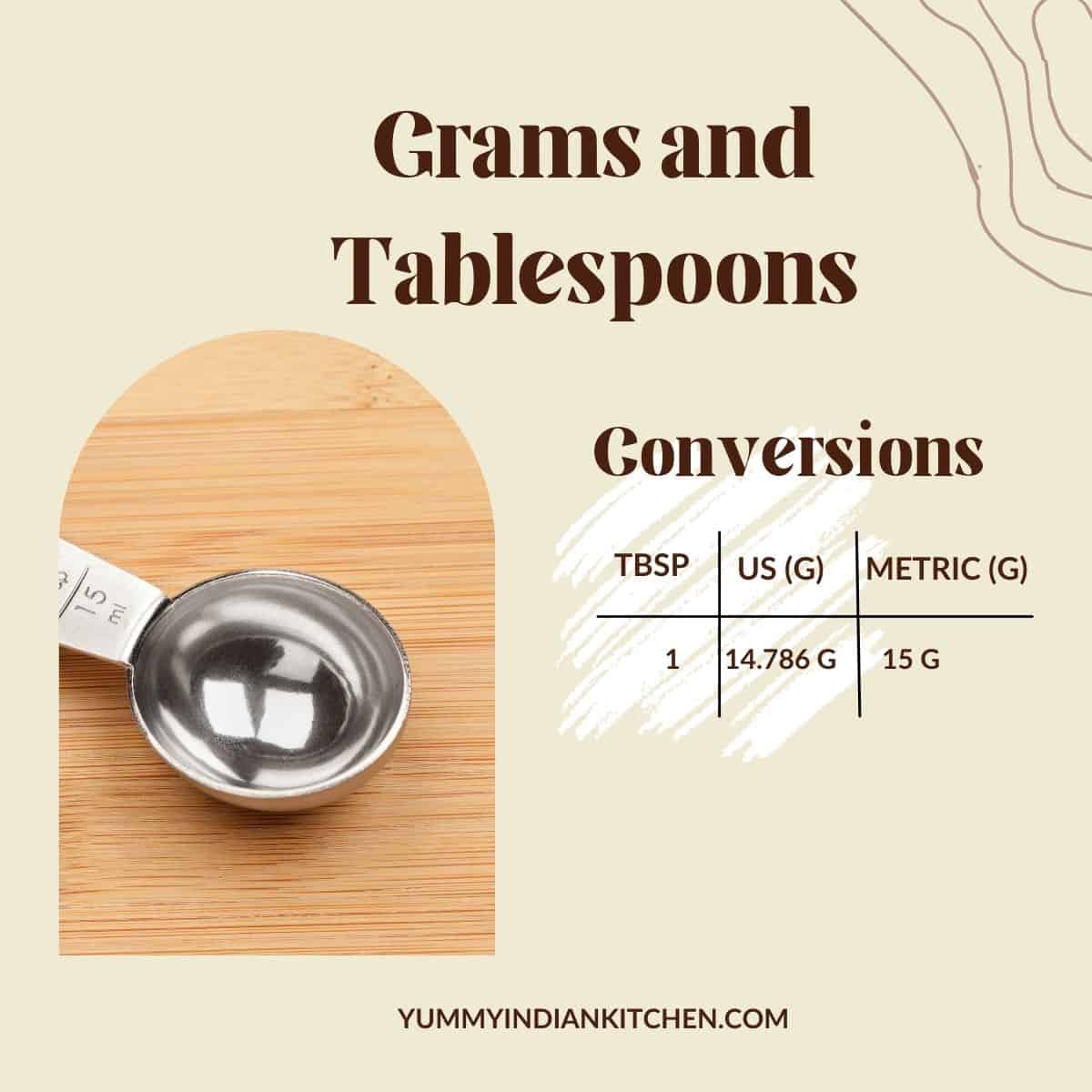
Conversion from tablespoon to grams and grams to tbsp
To know the value from tablespoon to grams, use (tbsp number * 14.786g )for Us customary and (tablespoon number * 15 g) for metric.
Ex: 4 tablespoon = 4 * 14.786 g=59.144 g
and
4 tablespoon = 4*15g = 60 g in metric
To know the value from grams to a tablespoon, divide the grams/14.786 to get a tablespoon in U.S. measurements and grams/15 g to get the tablespoon value in the metric system.
For Ex: To know 10 grams in terms of a tablespoon is,
10 / 14.786 =0.676223965377333 tablespoon or round it to 0.7 US tablespoon
and
10/15 = 0.66 tablespoon or round it to 0.7 Metric tablespoon
Table for tablespoons to grams
Knowing the value of a tablespoon for one conversion makes it easy to calculate the rest of the conversions easily.
For example,
If 1 tablespoon = 15 g, for a different number of tablespoons, you need to multiply the tablespoon number by 15 g to estimate the quantity.
Check out below how to do it,
For Ex: 2 tablespoon = 2*15g = 30 g
For 5 tablespoon = 5*15 g= 75 g
For 10 tablespoon = 10*15g = 150 g
Table for 1 tablespoon water in terms of weight and volume in METRIC and U.S. System.
| Tablespoons | Grams(Metric) | Grams (U.S.) | Volume (Metric) | Volume (U.S.) |
| 1 tablespoon | 15 g | 14.8 g | 15 ml | 14.8 ml |
| 2 tablespoon | 30 g | 29.6 g | 30 ml | 2.6 ml |
| 3 tablespoon | 45 g | 44.4 g | 45 ml | 44.4 ml |
| 4 tablespoon | 60 g | 59.2 g | 60 ml | 59.2 ml |
| 5 tablespoon | 75 g | 74 g | 75 ml | 74 ml |
| 10 tablespoon | 150 g | 148 g | 150 ml | 148 ml |
| 15 tablespoon | 225 g | 222 g | 225 ml | 222 ml |
| 20 tablespoon | 300 g | 296 g | 300 ml | 296 ml |
Below is another table to show how other liquid ingredients' weight varies, but make sure to use the same tablespoon to check the results.
Conversion table for liquids
Let us calculate the values of grams in one tablespoon for liquids such as water, milk, and oil in Metric and U.S. measurements.
For 1 tablespoon Each in Grams
| Ingredient | 1 tablespoon Metric (G) | 1 tablespoon U.S. (G) |
| Water (1 tbsp) | 15 g | 14.8 g |
| Milk (1 tbsp) | 15.5 g | 15. 3 g |
| Oil ( 1 tbsp) | 14.2 g | 14 g |
If we look at the above results in the table, there is a difference of just a few grams and ml, and this does not matter much in terms of cooking and can roughly be taken as below to avoid confusion.
Use 1 tablespoon = 15 g to measure the weight of liquids for clarity
AND
1 tablespoon = 15 ml to weigh volume of liquids.
Table for liquids for various tablespoons
| Ingredient | Tablespoons | Metric (Grams) | U.S. (Grams) |
| Water | 1 tbsp | 15 g | 14.8 g |
| " | 2 tbsp | 30 g | 29.6 g |
| " | 3 tbsp | 45 g | 44.4 g |
| " | 4 tbsp | 60 g | 59.1 g |
| " | 5 tbsp | 75 g | 73.9 g |
| " | 10 tbsp | 150 g | 147.9 g |
| Milk | 1 tbsp | 15.5 g | 15.3 g |
| " | 2 tbsp | 31.1 g | 30.6 g |
| " | 3 tbsp | 46.6 g | 45.9 g |
| " | 4 tbsp | 62.1 g | 61.2 g |
| " | 5 tbsp | 77.6 g | 76.5 g |
| " | 10 tbsp | 155.3 g | 153 g |
| Oil (Olive) | 1 tbsp | 13.8 g | 13.6 g |
| " | 2 tbsp | 27.6 g | 27.2 g |
| " | 3 tbsp | 41.4 g | 40.8 g |
| " | 4 tbsp | 55.2 g | 54.4 g |
| " | 5 tbsp | 69 g | 68 g |
| " | 10 tbsp | 138 g | 136 g |
Conversion table for tablespoon to grams for dry ingredients
This table is for 1 tablespoon of each dry ingredient
| Dry Ingredient 1 tbsp | Metric (G) | U.S. (G) |
| Butter | 14.4 g | 14.2 g |
| Sugar(granulated) | 12.7 g | 12.6 g |
| Salt (fine) | 18 g | 17.8 g |
| Coffee (ground) | 5.1 g | 5 g |
| Yeast | 14.3 g | 14 g |
| Baking powder | 13.5 g | 13.3 g |
| Flour (all-purpose) | 7.9 g | 7.8 g |
| Peanut butter | 18 g | 17.7 g |
The measurements here are mentioned just for a tablespoon of each ingredient.
If the quantity starts to increase and if we know the value of 1 tablespoon for a particular ingredient, it is easy to calculate the values for more tablespoons by multiplying.
Use cups in place of tablespoons and try to convert grams into a cup for cooking purposes.
Check out an example of butter below to calculate if tablespoons increase.
Metric conversion values for a tablespoon of butter to grams
For example:
1 tablespoon butter = 14.4 g in metric; for 2 tbsp, just multiply 14.4 by 2 to get a rough estimate in grams.
2 tablespoon butter = 2 * 14.4g = 28.8g
3 tablespoon butter = 3 * 14.4 g= 43.2 g
US Conversion values for a tablespoon of butter to grams
1 tablespoon butter = 14.2 g in US TBSP
2 tablespoon butter = 2 * 14.2 = 28.4 g
3 tablespoon = 3 * 14.2 = 42.6 g
Similarly, you can calculate grams for other dry ingredients by multiplying the number of tablespoons by the given grams for each tablespoon.
Grams to tablespoon conversion
Below are conversions to know how many tablespoons are there for given grams, which varies for different ingredients.
Check out an example below for butter.
Converting butter from Grams -> US TBSP
10 g of butter = 0.7 tablespoon
20 g =20 * 0.7tbsp = 1.4 tablespoon
30 g = 30 *0.7 = 2.1 tablespoon
40 g = 2.8 tbsp
50 g = 3.5 tablespoon
60 g = 4.2 tablespoon
70 g = 4.9 tablespoon
80 g = 5.6 tablespoon
90 g = 6.3 tablespoon
100 g = 7 tbsp
Points to remember while measuring
A tablespoon is a standard measurement for cooking. When measuring by weight, keep these things in mind:
- Make sure your scale is accurate. It is always a precise and safe option to use a digital scale; if you do not have a scale, this post can be helpful to measure.
- Use the same spoon every time.
- Be consistent with how you measure to avoid confusion.
If you're scooping the ingredients out with a spoon, use the same spoon each time for cooking.
That's why measuring by weight is often the best option. Knowing exactly how many grams are in a tablespoon, you can ensure your recipes come out just as you want them.
Frequently asked questions
1 tbsp=14.8 grams for US tablespoon and 1 tablespoon = 15 grams in Metric.
2 tbsps=29.6 g(US) and 2 tbsps= 30 g (Metric)
1 US tablespoon = 44.4 g and 1 tablespoon = 45 g(METRIC)
5 g => 5/14.786= 0.3 tablespoon (US) and 5 g => 5/15= 0.3 tablespoon (METRIC)
6 g = 0.4 tablespoon (US) and 6 g = 0.4 tablespoon (METRIC)
11 g = 0.7 tablespoon (US) and 11 g = 0.7 tablespoon (METRIC)
17 g = 1.1 tablespoon (US) and 17 g = 1.1 tablespoon (METRIC)
10 g = 0.7 tablespoon (US) and 10 g = 0.7 tablespoon (METRIC)
50 g = 3.4 tablespoon (US) and 50 g = 3.3 tablespoon (METRIC)
100 g = 6.8 tablespoon (US) and 100 g = 6.7 tablespoon (METRIC)
Therefore, there are mainly three ways to convert grams into a tablespoon using the Metric system, the U.S. system, and the Imperial system of measurements.
Most of the time, we use the metric system, and in the U.S., they mainly use U.S. customary measurements to measure volumes.
Following the data details mentioned above can help us calculate values easily in both metric and U.S. Systems.
If we know the value for 1 tbsp, we can calculate values for any number of tablespoons to grams by multiplying and using simple mathematics.
Related posts

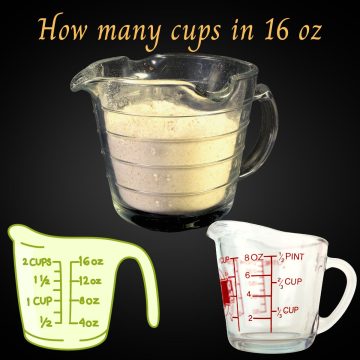

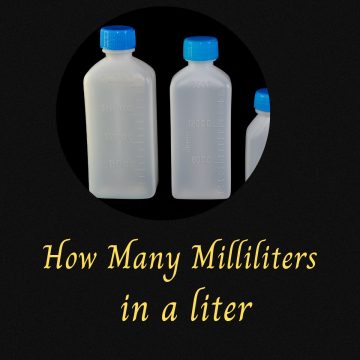
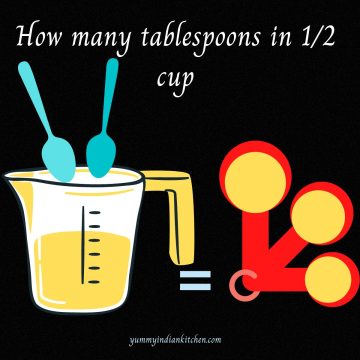
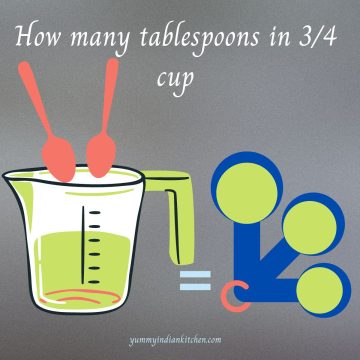
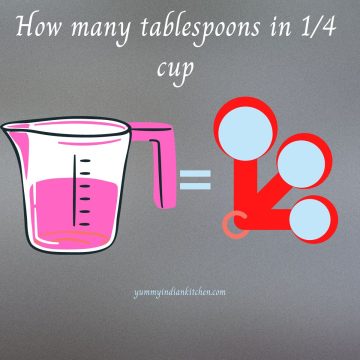
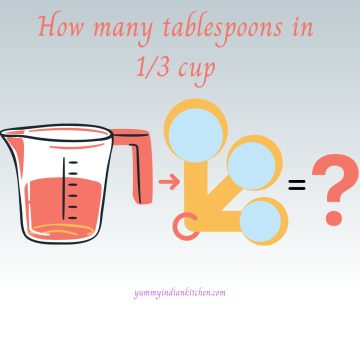
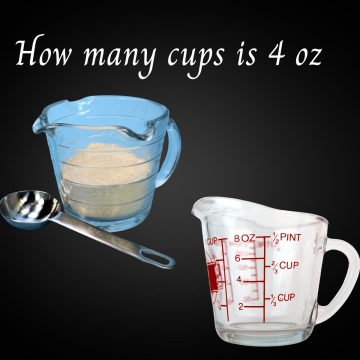
Leave a Reply